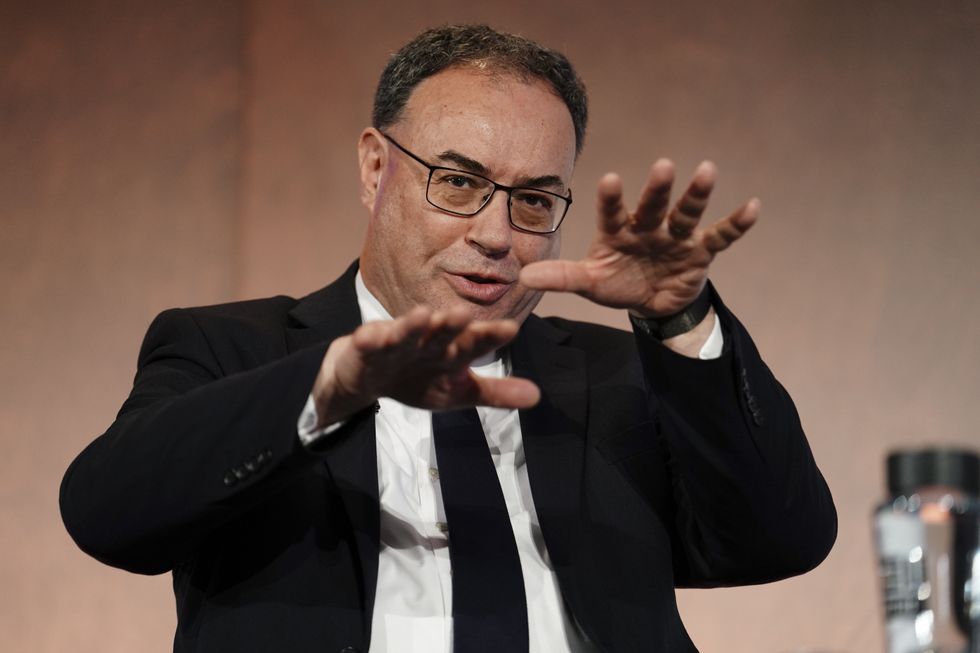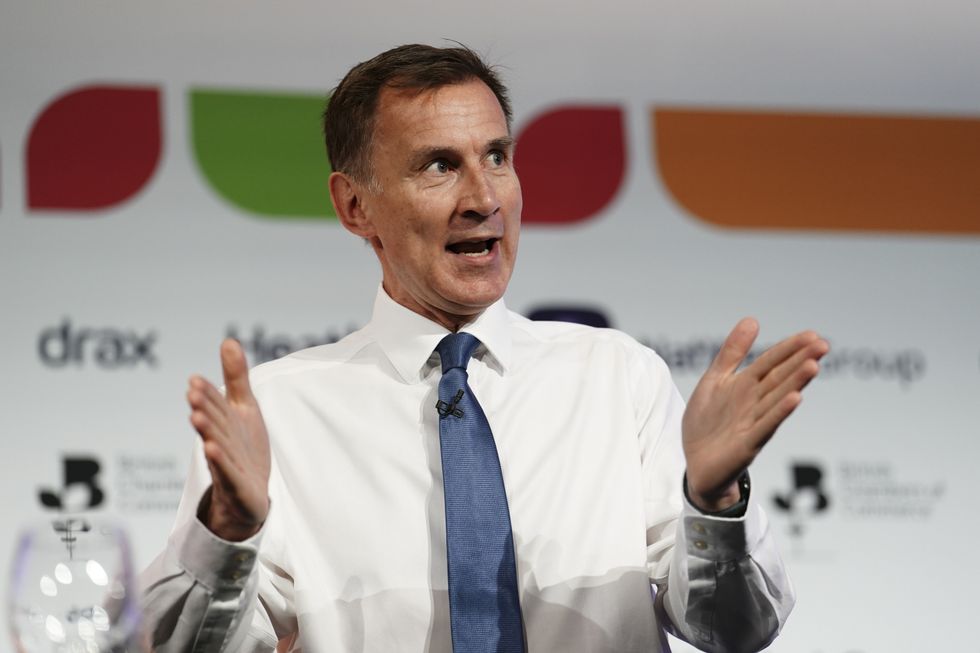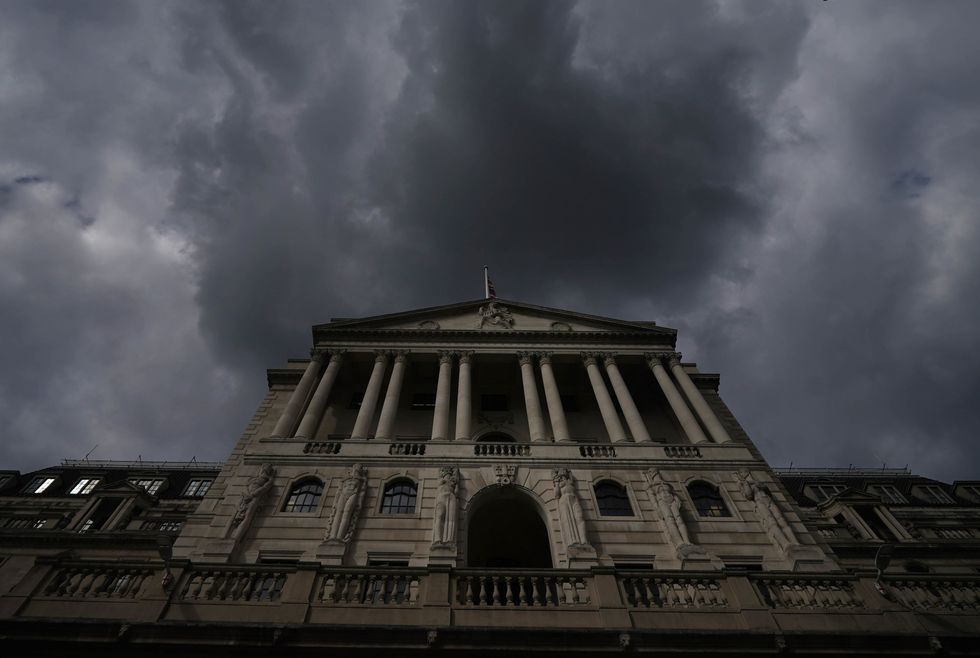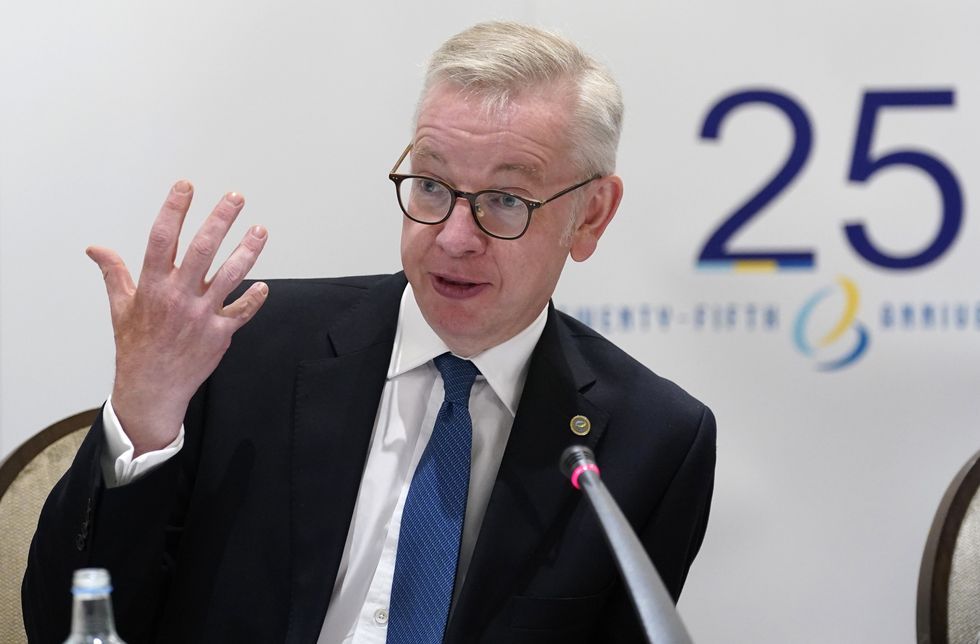
Interest rates at their highest since 2008
PA
The Bank of England has been told to think carefully before raising interest rates again
Don't Miss
Most Read
Trending on GB News
While the Bank of England gears up for its 13th consecutive interest rate hike, experts are pleading for a period of respite for mortgage holders.
Talking the trigger finger central Bank down from the ledge, politicians and industry experts have cited the shift towards fixed-rate mortgages, the consequence of inflation-inducing higher wages, and fears over squeezing the economy into recession as reasoning for a reprieve.
A proposed increase in the interest rate on Thursday from 4.5 per cent to 4.75 per cent, with a further rise to 5 per cent in August still on the cards, would see rates at the highest since 2008.
It has been estimated that such a move would result in the average homeowner paying £2,900 a year more from 2024 onwards.

Andrew Bailey, Governor of the Bank of England
PA
Ying Tan, the new CEO (subject to market approval) of whole-of-market mortgage brokers Habito told GB News: “The majority of the country are grasping onto their fixed rate mortgages, the past year has seen a continuous hike in interest rates where the impact on homeowners has only just began as they come off their fix rate.
"I urge the Bank of England to take a momentary pause in their rate hikes and allow the previous 12 months of continuous increase to take effect before deciding their next action.
"The anxiety and worry in the market is real and if this relentless onslaught continues there will be a bigger problem in the economy that we will all have to face.
"I encourage the many that are concerned to reach out to their mortgage broker to explore their options.”

Chancellor Jeremy Hunt
PA
When rates were last this high, on the eve of the financial crisis, around half of mortgages were set at fixed rates meaning half of homeowners would feel the pinch immediately.
Today, only 15 per cent are on variable rates meaning that the vast majority are insulated from extra cost in the short term but the 800,000 people set to remortgage their homes in 2024 will face a jump in cost.
Sir Howard Davies, NatWest chairman and former Bank of England deputy governor, also proposed the Bank ‘wait a bit’ for the impact of its last bumper rate rise in late March to take effect.
Sir Howard told Radio 4: “In the past when we've had significant rises in interest rates – say, before the last financial crisis – the mortgage market in this country then was largely variable rate.

The Bank of England is between a rock and a hard place
PA
“So, when the interest rate went up, by the end of the following month everybody was paying more on their mortgages.
“Now we have a mortgage market where most people are on fixed rate. Therefore, when you put up interest rates, for a while you don't have much impact, because you only have an impact on the small number of people paying variable rate, and on the people whose fixed rate just happens to come up at that point for renewal.”
Traditionally, policymakers believe that it takes 18 to 24 months for rises to fully feed into the wider economy.
Currently, the jobs market has proved surprisingly strong with wages soaring in the private sector causing inflation to remain sticky at 8.7 per cent in April, four times the Bank’s target.
Andrew Montlake of Coreco Mortgage Brokers said: “It takes time for rate increases to filter through the system and the last thing people need is more fuel heaped on to the fire of rising monthly expenses.
“They say the definition of insanity is doing the same thing over and over and expecting a different result, yet it seems the Bank of England will continue to blindly follow a course of action that could well do more harm than good.”
Several banks have raised mortgage rates or cut back the number of loans they offer, while interest rates on Government bonds have surged.
Oxford Economics, global forecasting body, predict that a rise to 5 per cent would ‘not out of the question’.
Andrew Goodwin at Oxford Economics says “the scale of the recent market reaction is indicative of a lack of confidence in the Bank of England’s ability to bring inflation under control.
“We think the Monetary Policy Committee will want to reassert its inflation-fighting credibility and will hike again in August, taking the Bank Rate to 5pc.”

Housing Secretary Michael Gove
PA
The Bank of England faced initial criticism for being sluggish off the mark in raising interest rates after the wholesale money printing of the pandemic.
Treasury sources have also acknowledged that a mortgage subsidy would drive up inflation and house prices, proving expensive and unfair to renters who would be footing the bill for homeowners via their taxes.
Pat McFadden, Labour Treasury spokesman, said: “People across Britain face a Tory mortgage penalty that's hitting their finances hard.
“The Tories' disastrous mini-budget spooked the markets causing a surge in UK government borrowing costs and higher interest rates.
“A Labour government would not allow this to continue. First and foremost, we will restore financial and economic stability, and everything we do will be built on the rock of fiscal responsibility, bound by our fiscal rules.”
A Treasury source told the Daily Mail: 'The single most effective policy to help mortgage holders is to bear down on inflation, thereby limiting interest rate rises.
“Borrowing money to subsidise mortgages risks fuelling inflation further, forcing the Bank of England to respond with even higher interest rates. It would be totally self-defeating.”







